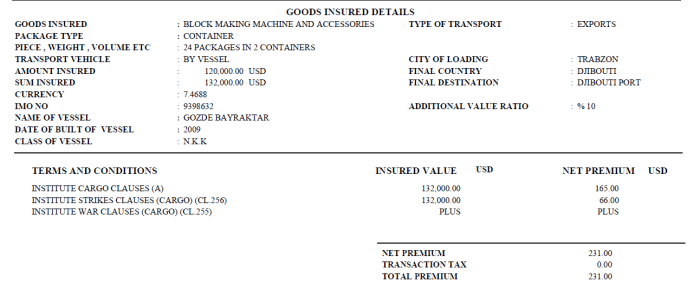Liberalization clause in an insurance policy – Liberalization clauses in insurance policies play a crucial role in shaping the coverage and benefits provided to policyholders. This comprehensive guide delves into the intricacies of liberalization clauses, exploring their definition, types, benefits, considerations, examples, impact on policy coverage, and legal and regulatory implications.
By understanding the nuances of liberalization clauses, policyholders and insurers can ensure that their policies accurately reflect their risk profiles and provide adequate protection.
1. Definition of Liberalization Clause

A liberalization clause is a provision in an insurance policy that allows the policyholder to benefit from any improvements or enhancements made to the policy terms or coverage during the policy period.
Its purpose is to ensure that the policyholder receives the most up-to-date and comprehensive coverage available, regardless of when the policy was originally purchased.
2. Types of Liberalization Clauses
2.1 Automatic Liberalization Clauses
These clauses automatically apply any improvements or enhancements to the policy without requiring any action from the policyholder.
2.2 Optional Liberalization Clauses
These clauses give the policyholder the option to accept or decline any improvements or enhancements to the policy.
2.3 Partial Liberalization Clauses
These clauses only apply certain improvements or enhancements to the policy, such as coverage for new technologies or changes in policy definitions.
3. Benefits of Liberalization Clauses

3.1 Enhanced Coverage for Policyholders, Liberalization clause in an insurance policy
Liberalization clauses ensure that policyholders receive the most up-to-date coverage, even if they do not actively seek it out.
3.2 Reduced Risk of Underinsurance
By automatically updating the policy coverage, liberalization clauses help reduce the risk of policyholders being underinsured.
3.3 Improved Policy Value
Liberalization clauses enhance the value of an insurance policy by providing additional coverage without increasing the premium.
4. Considerations When Drafting Liberalization Clauses

4.1 Clarity and Specificity
Liberalization clauses should be drafted clearly and specifically to avoid ambiguity or confusion.
4.2 Scope of Coverage
The drafter should carefully consider the scope of coverage that will be subject to liberalization.
4.3 Retroactive Application
It is important to determine whether the liberalization clause will apply retroactively to events that occurred before the clause was added.
5. Examples of Liberalization Clauses: Liberalization Clause In An Insurance Policy
“This policy will be automatically updated to include any improvements or enhancements to the coverage provided under this policy.”
“The policyholder has the option to accept or decline any improvements or enhancements to the coverage provided under this policy.”
“This liberalization clause only applies to improvements or enhancements that are made to the policy’s coverage for personal property.”
Question Bank
What is the purpose of a liberalization clause in an insurance policy?
Liberalization clauses allow insurance policies to be automatically updated to include new or expanded coverage without the need for an endorsement or policy change.
What are the different types of liberalization clauses?
Common types of liberalization clauses include automatic reinstatement, extended coverage, and increased limits.
What are the benefits of including a liberalization clause in an insurance policy?
Liberalization clauses provide peace of mind, ensure adequate coverage, and streamline policy management.
What factors should be considered when drafting a liberalization clause?
Clarity, specificity, and compliance with legal and regulatory requirements are key considerations.
How can liberalization clauses impact policy coverage?
Liberalization clauses can expand coverage, increase limits, or introduce new benefits, potentially affecting premiums and risk assessment.